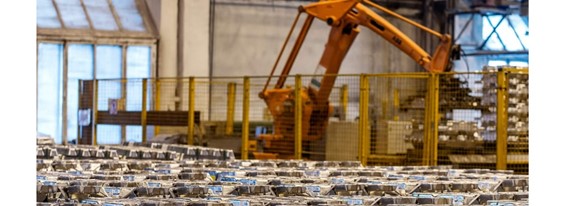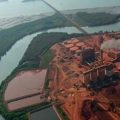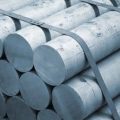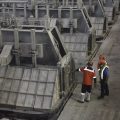The multinational Rusal, one of the most important international aluminum producers, has released its results for the past year 2021. Specifically, the company’s revenue for its last fiscal year increased 40% to $11.994 billion compared to $8.566 billion in 2020.
This increase was due to growth in the average aluminum price to USD 2,553/tonne (+41.4% y-o-y), driven by both the LME1 QP component (+38.9% y-o-y to USD 2,303/tonne) and the average realized premium component2 (+70.4% y-o-y to USD 250/tonne). VAP sales increased by 18.1% to 2,034 thousand tons, reaching 52% of total production (vs. 44% in 2020) total production (vs. 44% in 2020).
As noted by the Russian giant, at the end of February and March 2022, some countries and multilateral organizations announced new sanctions packages against the public debt of the Russian Federation, the Central Bank of Russia, a number of Russian banks and certain entities and institutions related to the Russian government, as well as personal sanctions against a number of individuals and other restrictions.
These developments are expected to affect the activities of Russian companies in various sectors of the economy. Partly due to rising geopolitical tensions, since February 2022 there has been a significant increase in volatility in the stock and currency markets, as well as a significant depreciation of the ruble against the U.S. dollar and the euro.
Given the current circumstances, the company may potentially face difficulties in the supply of equipment, which may lead to the postponement of investment projects. There may be a probable need to replace foreign currency credit lines with RUB-denominated debt which may have a negative effect on the company’s financial results due to high interest rates in the local RUB market caused by general instability and the key interest rate set by the Bank of Russia at 20%. The recently announced intention of the Russian government to change the regulation of domestic metal sales prices may have an adverse effect on the company’s profitability.
Also, on March 1, 2022, the company announced that, due to unavoidable logistical and transportation difficulties in and around the Black Sea, it has been forced to temporarily halt production at the Nikolaev alumina refinery, located in the Nikolaev region of Ukraine. The 2021 production of this refinery amounted to 1.8 million tons of alumina. In addition, on March 20, the Australian government imposed an immediate ban on exports of alumina and aluminum ores, including bauxite, to Russia. This measure will affect, among other things, the export of alumina from Australia, which accounts for almost 20% of RUSAL’s demand.
Currently, the company’s management is assessing the effect of all of the above and analyzing the potential impact of changing and uncertain micro and macroeconomic conditions on the company’s future financial condition and results of operations in 2022.















